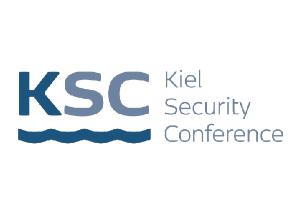European and Indo-Pacific security is increasingly closely connected. This is partly driven by the global effects of Russia’s war of aggression against Ukraine, China’s more indirect and North Korea’s direct military support for Moscow’s military campaign against Kyiv. Other cross-regional concerns include the stability of the international rules-based order, economic security and threats ranging from hybrid warfare to strategic (including nuclear) deterrence. Moreover, there are shared security concerns in the new competitive domains of cyber and space and over globalised transnational crises such as climate change.
Maritime security is a critical area of common concern, specifically the threats to critical undersea infrastructure such as seabed communications cables. There is also a growing focus in both regions on hybrid or ‘grey zone’ warfare at sea, including the use of ‘shadow fleets’ of chiefly ageing oil tankers by Russia, Iran and North Korea. These operate on the margins of the global shipping industry in an attempt to circumvent international sanctions.
The Baltic Sea is a relatively confined and restricted waterway compared to most of the Indo-Pacific. But, like the Baltic Sea, the Indo-Pacific contains congested and contested waters, with common challenges of upholding freedom of navigation and the provisions of the UN Convention on the Law of the Sea. Although the Baltic Sea has recently been referred to as a ‘NATO lake’, there are still significant challenges in maintaining it as a safe and secure maritime thoroughfare. These common concerns could drive deeper inter-regional military co-operation, joint capability development and improved defence industrial capacity.
Russia’s war of aggression against Ukraine has also heightened perceptions, particularly among states in or around the Arctic Circle, that the Arctic and the High North are associated regions of increased strategic risk. This has been reinforced by the effects of global warming and the melting of Arctic sea ice, raising the prospect that transpolar sea ways will become navigable more routinely.
The character of these common threats means that all the various players in the Baltic region have a role to play in increasing inter-regional cooperation and capability development. This includes the littoral Baltic states, even if they have different levels of ambition and capacity to project power beyond their immediate neighbourhood. Areas of inter-regional cooperation and capability development could include cyber security, industrial cooperation in emerging defence technology areas, improving societal resilience, and cooperation with the Indo-Pacific both bilaterally and as part of NATO and European efforts. Lithuania, for instance, is the latest European country to publicise Indo-Pacific ambitions, having published Indo-Pacific guidelines in 2023 and an Indo-Pacific defence strategy in 2025.
Smaller states could also assume more of the burden of maritime security in and around the Baltic Sea, especially in overall domain awareness and niche areas like mine countermeasures (MCM). This could free up resources for those neighbouring states trying to balance growing defence demands at home with an ambition to deepen defence engagement in the Indo-Pacific.
Read the entire Monitor: ‘The Baltic, High North and the Indo-Pacific: Common Connections and Shared Concerns’ here as PDF.
Topics
About this series
The Monitor series deals with one main topic at a time from the perspective of KAS experts and places it in the political and social context on the basis of a few key points.
Order details
The contributions appear exclusively online and can therefore not be ordered.
The current main topics are “Development policy”, “Sustainability” and “Election and social research”. The contributions of these sub-series are presented for you on separate overview pages in addition to the overall series.
AI training requirements should be reformed to be more practical
Czechia's defense and Ukraine policy under the new Babiš government – a first impression
Does the new military service bring security and equality?
„Kognitive Kriegsführung hat längst begonnen“
World trade continues even without WTO reform




